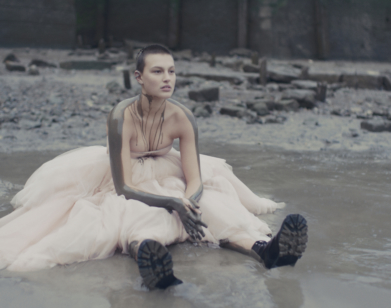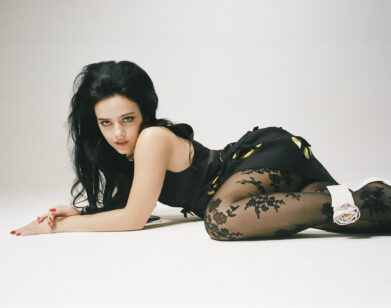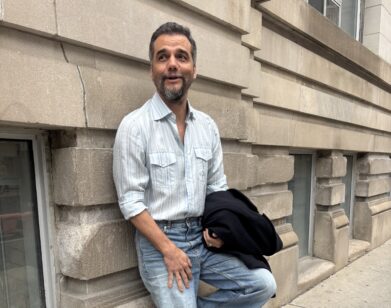How Monos Composer Mica Levi Plans To Survive the Apocalypse
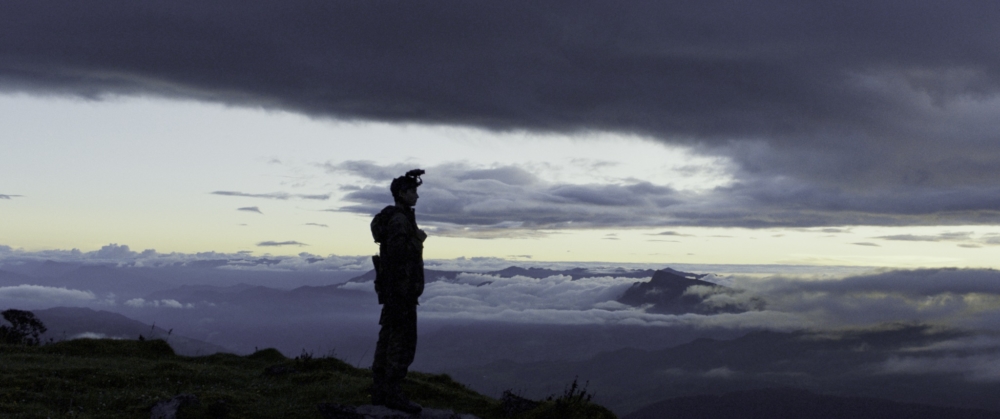
A still from Monos. Photo courtesy of Neon.
Mica Levi is a true original, though this comes as no surprise to followers of the British-born, multi-hyphenate musician. Also known as Micachu, she’s blended rock, electronica, and experimental pop over the course of three albums with her band The Shapes, showcasing an irreverence for genre and style that bleeds into her work for film. Levi composed the music for the cryptic and haunting Under The Skin in 2014, as well as for the sweeping, Natalie Portman-led biopic Jackie, for which she was nominated for Best Original Score at the 2016 Academy Awards (one of six women to be nominated for the award, ever). Most recently, she served as the composer for the Colombian film Monos, which follows a group of teenagers holed up on a remote, rainy mountaintop fortress who are charged with watching over a hostage for the clandestine “Organization.” The group’s mission begins to fracture, however, as they begin to question its purpose in the face of violence and isolation. Levi’s score blends whistles, pops, and synths that weave across forests and rivers to create sounds quite unlike any other score you’d hear this fall. Directed by Alejandro Landes, Monos is Colombia’s official entry for the International Feature Film (formerly Best Foreign Language Film) for the 2020 Oscars, and Levi’s fourth film score to date. With Monos opening in theaters this weekend, Interview chatted with the composer about composing its music, what she’s listening to now, and how a movie score could make her want to take up gambling.
———
MARK BURGER: What’s your favorite part about composing a new score?
MICA LEVI: When you put it on the film. [Laughs.] That’s the kick. The minute it’s with the picture, your brain sticks it together and tries to rationalize it and make sense of it. You get this third thing happening. I guess I get a real kick when I get let inside into something else. Sometimes you’d be looking at something, maybe even the same thing for a few weeks, and you put a different bit of music on it and you see something you never saw before. The kick is really seeing what happens when you put something to it. I thought you were going to ask me what my favorite bit in the film was.
BURGER: Do you have a favorite scene?
LEVI: That’s difficult. There’re so many bits. It’s all rushing back. That’s one of the things I actually really like about the film. You’ve got all these characters, you’ve got all these elements, so I don’t really have too much of a preference about things. What was your favorite scene?
BURGER: I thought the whole film was very gripping. Especially during the sequences that were amped up, with the doctor in the forest.
LEVI: With the bees. Oh my god.
BURGER: A nightmare. Do you think you would survive for an extended amount of time in the wilderness?
LEVI: Definitely not. But I’ve actually managed to surround myself with people who will be able to survive the apocalypse.
BURGER: Smart.
LEVI: I mean, not that that’s why, but maybe, subconsciously, I’ve organized it.
BURGER: It’s like, “Oh, yeah, you’re nice, but also you know how to make a fire…”
LEVI: [Laughs] Exactly.
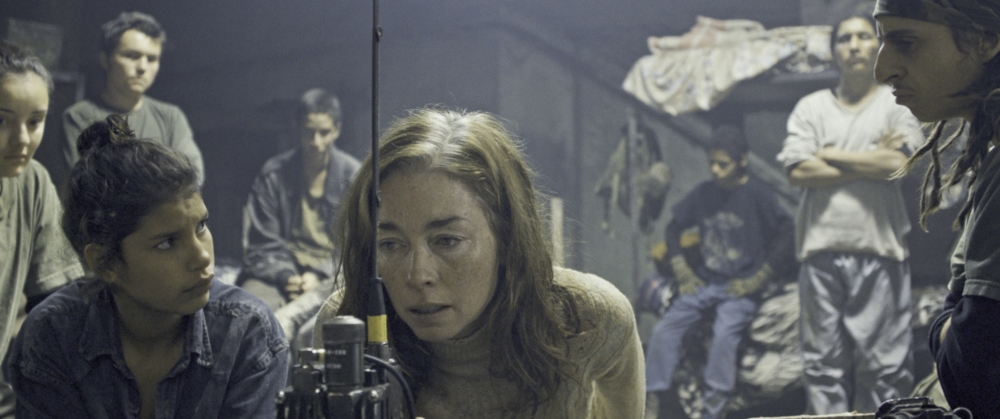
Photo courtesy of Neon.
BURGER: How many instruments do you play?
LEVI: Just a few. I play a bit here and there of everything, except for brass instruments. Brass and wind, I don’t know how to play them.
BURGER: Is there anything you want to learn how to play or venture into?
LEVI: I think learning the wind instrument. It’s quite expressive. You’ve got to breathe into it. It seems like a circle. You breathe out, it comes out of the instrument. Then you breathe in again. I think that that’s probably a pretty good way to make music.
BURGER: There’s whistling in the score for Monos.
LEVI: Yeah. I was gonna say bells and whistles, but it’s tins and whistles. That’s what the majority of the score is, and then these risers.
BURGER: I loved when I heard that revving.
LEVI: Yeah, revving. That’s a good word for it. There’s a scene in the film where I felt like there shouldn’t be any music. They’re just dancing without music. They’re really pissed, and they’re just free and wild, and if you’re dancing with no music on, you’re just completely letting go, you know? I feel like that is a pretty calm, peaceful, perfect moment that they were in. There needed to be music in there, so we figured it out. Hopefully it’s clear that they’re not dancing to that music.
BURGER: What kind of music are you listening to these days?
LEVI: I listen to the radio quite a lot. It gives me a lot of different types of music. Something I really enjoyed listening to the other day was some older music–Miles Davis. I like to listen to music that my friends make, and that gets played around where I live. I like listening to, I don’t know, all sorts. I like a lot of the music that people in London are making, or people coming to London. I think that’s definitely one of the great things about being in a city, all the music that’s going on.
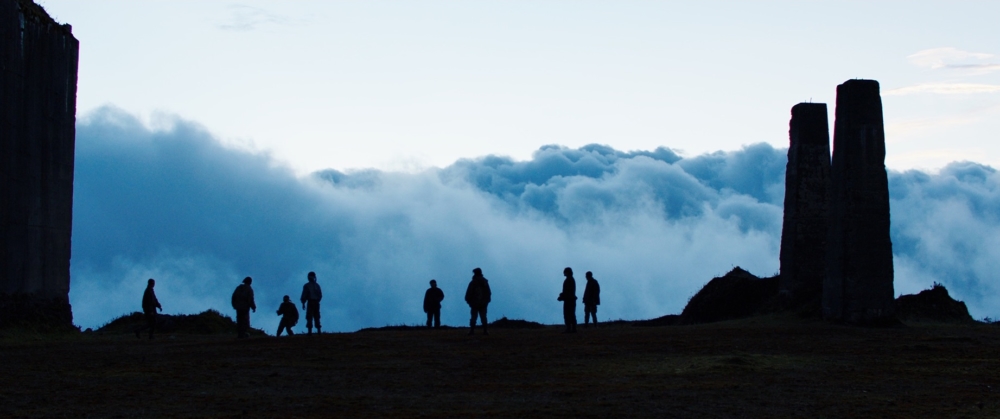
Photo courtesy of Neon.
BURGER: Do you have a favorite movie score?
LEVI: That’s a difficult question. I like lots of American films from the ’70s. The first thing that came to mind is Taxi Driver. Usually if I love the film, the music is part of that. If I really love the film, I love the music as well, just by proxy. Do you get that feeling?
BURGER: For me, I might not like the movie, but I might really love the score.
LEVI: Really? So it’s like the other way around for you. Do you ever have the feeling where you think the film is really good, but you didn’t like the score?
BURGER: No, I don’t think. I’m not like, “Oh, this is a terrible score,” I’m sort of just like, “It’s fine for what it is.” I mean, I’m not the best judge about what’s a good or a bad score, but I definitely notice the ones that I enjoy.
LEVI: Personally, if I really like the film, then I like the score. It’s part of that whole thing that I just experienced. It might even convince me to start wearing the clothes from the film. If I like it that much, I might take up gambling or something. It can do all sorts of things to you.
BURGER: So if it was a movie in the ’70s in New York, you’d start wearing leather jackets and fringe or whatever?
LEVI: Definitely! Why not?

